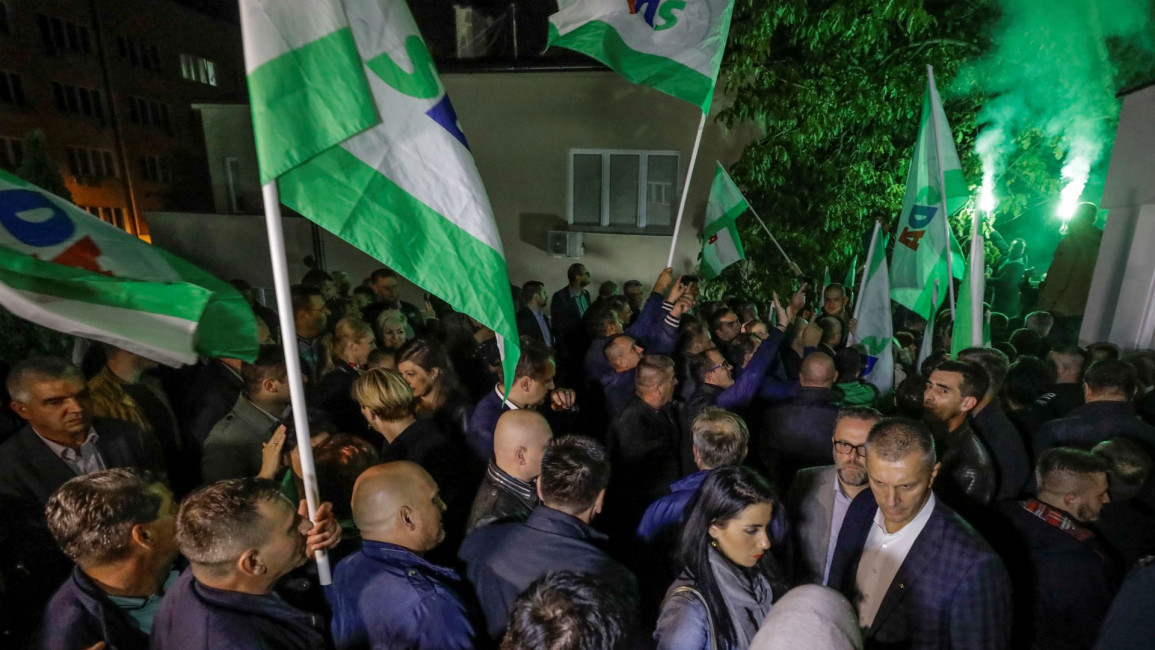Bosnia votes for leaders of fragmented nation
The poor Balkan state remains a patchwork of ethnic enclaves, with power formally divided among its three main groups: Bosnian Muslims (Bosniaks), Serbs and Croats.
Vote counting began after polls closed at 1700 GMT in an election that will fill Bosnia's joint presidency as well as numerous other top posts and assemblies. Results are expected after midnight (2200 GMT).
The Balkan country's complex political system is a relic of the 1992-95 war that left 100,000 dead, displaced millions and wrecked the economy and infrastructure.
A quarter of a century later, Bosnia is still governed by the peace accord that stopped the fighting and sliced the country in two halves - one dominated by Serbs and the other home to Muslims and a Croat minority.
Each "entity" has its own government with a high level of autonomy.
The two halves are bound by a relatively weak national administration headed by a tripartite presidency that rotates between a Serb, Croat and Muslim member.
Divide and rule
Among the population of 3.5 million, there is a pervasive sense of disillusionment with a political class accused of stoking fear and nationalism to stay in power.
"No party meets my expectations as a citizen," said Danica Odovic, a 47-year-old bookseller outside a polling station in Banja Luka, the capital of the Serb-run entity.
She added that she was voting only for "change... not because I think the others are better."
One candidate for the Serb presidential seat, Milorad Dodik, is a pro-Russia nationalist who regularly raises the prospect of a vote on the secession of the country's Serb-dominated entity.
Dodik has led that entity Republika Srpska since 2006 and rarely sets foot in Bosnia's capital Sarajevo, which he terms a hostile "foreign territory".
Victory over incumbent Mladen Ivanic would keep Dodik, who is blacklisted by the United States for threatening the country's integrity, at the forefront of Bosnian politics.
"Each of us has a duty to choose those who we think will best preserve the unity of the Republika Srpska," Dodik, 59, told the press after casting a ballot in his hometown Laktasi.
If Dodik wins, he could find himself working alongside the current Croat member of the presidency Dragan Covic, who also advocates drawing deeper communal divisions.
Covic's HDZ party would like to see the creation of a third entity for Croats, who currently share a region with majority Bosnian Muslims.
The purpose of these "ethno-nationalist" policies is to "maintain the status quo and stagnation" that helps keep such leaders in control, said Bosnian political analyst Tanja Topic.
Corruption
Experts say Bosnia's unwieldy political structure is slowing progress on reforms and creating a space for graft to run wild.
According to Transparency International, corruption is a serious problem at "all levels of government".
In local 2016 elections, the watchdog reported a range of malpractice, including parties promising jobs in exchange for votes.
This culture of patronage is one factor driving high emigration in recent years, a trend that deepens the country's economic woes.
A low average wage - under 430 euros ($495) a month - and high unemployment - around one fifth of the population - are also pushing young people to pack their bags.
"Most young people see their future outside Bosnia," said Zoran Kresic, an analyst.
Hearing these "same stories, messages of war and of the impossibility of living together, demotivates people from staying", he added.



